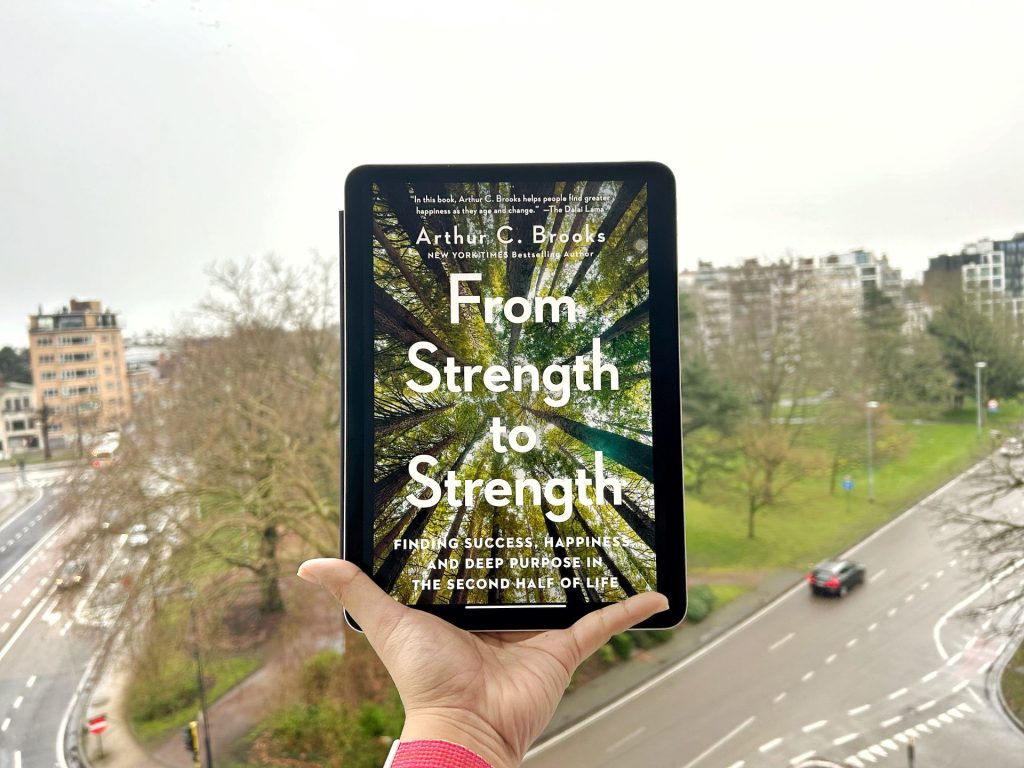Bill Bryson’s “The Body: A Guide for Occupants” is like a fun trip inside the human body. It’s got all the good stuff from a biology book but told in a way that’s easy to understand and fun to read. Bryson mixes science and history with some laughs to answer big and small questions about our bodies. It’s like he’s picked the coolest parts from school biology books and shared them in a really interesting way. This book is nothing like the usual boring and complicated science books. It shows how good Bryson is at making any topic interesting. If you’ve ever wanted to know more about your body without getting a headache from all the tough words, this book is perfect.
Below, you’ll find snippets of the insightful knowledge I’ve picked from this exceptional book.
Summary
If the largest component in humans is oxygen, why aren’t we light and bouncy like balloons?
- The reason we are not light and bouncy like a balloon is that the oxygen is mostly bound up with hydrogen.
How does the brain’s interpretation of touch influence our emotional response?
- Brain doesn’t just tell you how something feels, but how it ought to feel. That’s why the caress of a lover feels wonderful, but the same touch by a stranger would feel creepy or horrible. It’s also why it is so hard to tickle yourself.
Why do some theories propose that the emergence of agriculture and human migration to northern latitudes may have contributed to the evolution of lighter skin among certain populations?
- It has been suggested that light skin may be a consequence of human migration and the rise of agriculture. Hunter-gatherers got a lot of their vitamin D from fish and game, and these inputs fell sharply when people started growing crops, especially as they moved into northern latitudes. It therefore became a great advantage to have lighter skin, to synthesize extra vitamin D.
- The slow evolution of different skin tones worked fine when people stayed in one place or migrated slowly, but nowadays increased mobility means that lots of people end up inplaces where sun levels and skin tones don’t get along at all. In regions like northern, it isn’t possible in the winter months to extract enough vitamin D from weakened sunlight to maintain health, no matter how pale one’s skin, so vitamin D must be consumed as food. To meet dietary requirement from food alone, you would have to eat 15 eggs or six pounds (~3 kg) of Swiss cheese every day or swallow half a tablespoon of cod liver oil. In consequence, some 50% of people globally are estimated to be vitamin D deficient for at least part of the year. In northern climes, it may be as much as 90%.
Why do we flush when we are angry?
- The flush we get when we angry is a little counter-intuitive. When the body is poised for a fight, it mostly diverts blood flow to where it is really needed—namely the muscles—so why it would send blood to the face, where it confers no obvious physiological benefit, remains a mystery. One possibility suggested by Nina Jablonksi, an American anthropologist and palaeobiologist known for her research into the evolution of skin color in humans, is that it helps in some way to mediate blood pressure.
Why do we sweat when we are stressed?
- Sweating is activated by the release of adrenalin (norepinephrine), which is why you break into a sweat when you are stressed.
Why are teenagers so impulsive?
- The wiring in a teenager’s brain is only about 80% completed. Most of the growth of the brain occurs in the first 2 years. 95% finish by the age of 10, the synapses aren’t fully wired until a young person is in his or her mid to late twenties. That means that the teenage years effectively extend well into adulthood. In the meantime, the person in question will almost certainly have more impulsive, less reflective behavior than his elders, and will also be more susceptible to the effects of alcohol.
Why does a loss of balance often result in nausea?
- The ear is a responsible for keeping you balanced, called the vestibular system. It does everything that a gyroscope does on an airplane but in an extremely miniaturized form. Inside the vestibular channels is a gel that acts a little like the bubble in a spirit level. The gel’s movements form side to side ur up and down tell the brain in which direction we are traveling (which is how you can sense whether you are going up or down in a lift even in the absence of visual clues). The reason we feel dizzy when we jump from a merry-go-round is that the gel keeps moving even though the head has stopped, so the body is temporarily disoriented. That gel thickens as we age and doesn’t slosh around as well, which is one reason why the elderly are often not so steady on their feet (and why they especially shouldn’t jump from moving objects). When loss of balance is prolonged to severe, the brain doesn’t know quite what to make of it and interprets is as poisoning. That is why loss of balance so generally results in nausea.
Why are certain odors so powerfully linked to our memories?
- Our sense of smell is that it is the only one of the 5 basic sense that is not mediated by the hypothalamus. When we smell something, the information, for reasons, unknown, goes straight to the olfactory cortes, which is nestled close to the hippocampus, where memories are shaped, and it is thought by some neuroscientists that this may explain why certain odors are so powerfully evocative of memories for us.
Why is the sense of smell such an intensely personal experience?
- Gary Beauchamp, a eminent sensory scientists: we all smell the world differently. Although we all have 350-400 types of odor receptor, only about half of them are common to all people. That means we don’t smell the same things. About a third of people can’t smell androsterone, a hormone. One-third smell something like urine and one-third smell sandalwood. This is how complicated the science of smell is.
Why is it important to regularly get up and move around?
- Every time you stand up, roughly a pint and a half of blood tries to drain downwards, and your body has to somehow overcome the dead pull of gravity. To manage this your veins contain valves that stop blood from flowing backward, and the muscles in your legs act as pumps when they contract, helping blood in the lower body get back to the heart. To contract, however, they need to be in motion. That’s why it’s important to get up and move around regularly.
Author: Bill Bryson
Publication date: 15 October 2019
Number of pages: 450 pages





Leave a Reply